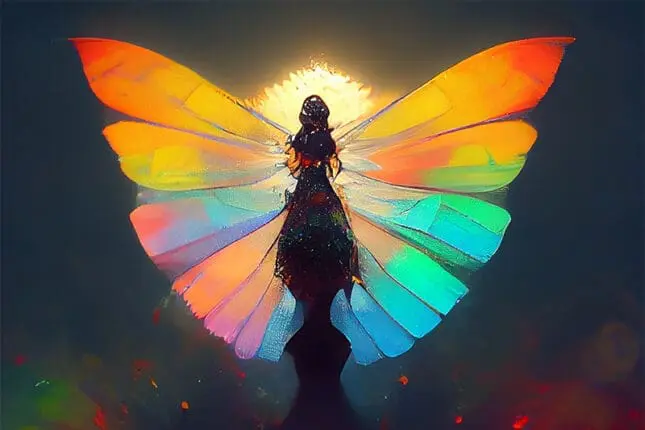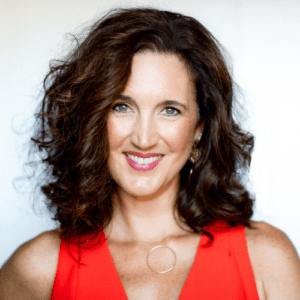Our intergenerational friendship was birthed over turkey sandwiches at the Psychotherapy Networker Symposium nearly 10 years ago. Alexandra (Gen X) was teaching a workshop on how therapists can support millennials as they navigate the challenging twists of intimate relationships, while Shadeen (Gen Y) was a graduate student—one of the very millennials Alexandra was striving to help clinicians understand.
We quickly learned that we shared a love of conferences, not just for getting continuing education, but for developing and refining our professional selves. And we found that we shared an awareness of how hard it can be for therapists to forge a professional self at the beginning of a career. That’s why, a few years later, we decided to host a casual forum for emerging clinicians at the same conference where we’d first met. After a long day of workshops, only a few brave souls attended, but we were struck by their energy and commitment to connecting with others. Despite the turnout, we remained intent on our desire to ensure that early-career therapists feel seen and supported. We asked ourselves: What are emerging clinicians yearning for in terms of mentorship? What role might experienced therapists play in celebrating and nurturing the dreams, goals, and visions of less-experienced therapists? How can we help each new cohort of therapists cultivate a sense of belonging and value within our field?
At the 2023 Symposium, more than 50 early-career therapists showed up to engage with us in a vulnerable, wide-reaching, and inspiring dialogue. During the forum, we asked them to give voice to their Big Hairy Audacious Goals (BHAGs), a term coined by Jim Collins and Jerry Porras in their book Built to Last. We love this term because it’s fun to say (in acronym form, it’s pronounced bee-hags), but also because big, hairy, and audacious hint at the importance of being oneself and thinking outside of the box, which the early-career therapists we spoke with also valued. We heard things like, I want to merge therapy and martial arts, I dream of combining group therapy and cooking, I want to reimagine doctoral training in psychology through the lens of social justice. We saw these new clinicians not only share their own dreams, but enthusiastically support those of others.
In this spirit, we want to share our own visions for the kinds of collaboration and encouragement that might develop between established clinicians and emerging ones. What follows are, in essence, two love letters we’ve written to our colleagues, in which we dream of different ways we can support each other. Everyone wins when we keep dreams alive—clients, experienced therapists, new therapists, and our field as a whole.
Dear Established Therapists,
I grew up as a dreamer. My visions were wild, vivid, expansive. I dreamed that unicorns were hiding among us in human form. I dreamed that people would band together and make a world fueled by love and compassion rather than hate and greed. I dreamed that this revolution would be initiated by the X-Men, of whom I’d be a suit-wearing member. I’d spend hours happily lost in these fantasies, mapping out my dreams in journals and planning how to put my visions into action.
Once I began studying to become a therapist, my dreams shifted. They became focused on how I could make the biggest positive impact on the practice of therapy. But not everyone encouraged those dreams. Some early mentors told me it was unethical to have an accessible digital presence. (This was over a decade ago.) Others poked holes in my vision of hosting intimate retreats for helping professionals. Still others deemed it unwise to move directly from coursework into private practice. Instead of aspirations, my dreams became embarrassments, the silly musings of a girl with an outsized imagination. So I did what the adults around me encouraged me to do. I grew up.
At best, I dreamed quietly. Small, reasonable dreams: finish grad school, become financially independent. Often, I didn’t dream at all. I just did what I was supposed to do: homework, case notes, assorted chores. But occasionally, I’d look around and see miracles happening: real, meaningful changes unfolding in the larger world—and in the work we were doing with clients. And I’d start to feel a stirring—butterflies in my belly, restlessness in my legs, an ache in my fingertips, or a tingle at the tip of my tongue, like the forgotten taste of something I’d once savored.
It was around then that I fell in love with a poem by Nayyirah Waheed. Here’s part of what it says:
do not choose the lesser life. do you hear me.
do you hear me.
choose the life that is. yours. the life that is seducing your lungs.
that is dripping down your chin.
I began to ache for more of the stuff I felt therapy was really about: transformation. Why weren’t we acknowledging how much magic we’re capable of as therapists? We know firsthand the difference we can make in a person’s emotional state with just a deep, attuned breath or the touch of a hand.
Our field needs its dreams. Dreams are for liberation. Liberation from individual despair as well as from larger, systemic ills—the impact of marginalization, oppression, and abuses of power. What if mentorship could be a home for this kind of dreaming? What if those of us further along in our careers connected with emerging professionals at this vulnerable stage to help them realize the scope of their powers, so they could go out into the world to do unfathomable good? What would our field look like if it were filled with empowered dreamers? The sorts of folks who abide by an oft-quoted directive: “Do not go where the path may lead: go instead where there is no path and leave a trail.”
I had the atypical experience of moving pretty quickly from graduate school to teaching graduate students because someone in the academic world knew it was one of my farfetched dreams and facilitated it. Sometimes that’s all it takes—one other person to believe with you. When I asked this person why he’d given me this opportunity, he said simply, “Someone early in my career took a chance on me; I’m going to take a chance on you.” And just like that, I became part of a network, a family of dreamers who carry and facilitate one another’s most passionate visions.
This sense of family has been continually reified throughout my career, most recently at the Symposium meetup for emerging therapists that I facilitated with Alexandra. When people named their BHAGs out loud—sometimes timidly or even apologetically—others in the circle responded with excitement, admiration, and most significantly, belief. Every dream expressed seemed possible, inevitable even. Movement-based therapies that shift our work from the confines of the indoors to being out in nature, or in folks’ neighborhoods, so clients can experience healing in their community. Wellness centers where you can book mental health services like you would at a spa. Therapy institutions that offer students and clients equitable, person-first care that disrupts the systems of oppression that have created much of the harm we’re healing from in the first place, such as racism, sexism, ableism, and the trauma-filled legacies of settler colonialism. In our emerging therapists’ meetup, speaking dreams out loud felt akin to voicing incantations, making the visions seem real enough to hold and use and share. As new therapists spoke, and the speaking gained momentum, the energy in the room turned electric.
Then, I began to worry about what would happen once we broke the circle. What would become of these dreamers and their dreams?
Will you established therapists indulge me for a moment and think about this? When did some of your own dreams fall into the clutches of Responsible Adulthood? Do you mourn those dreams, still? Have you realized any of your dreams? If so, who are the people who have helped to light your way—the people who once believed in you, and still do?
As a graduate student, every Friday afternoon I’d sit in the office of one of my supervisors and try to absorb everything he said about doing good therapy. But often, he’d turn the tables and push me to articulate what kind of clinician I wanted to be. Once, he asked, “What are your visions for your career?” Though I responded with a bunch of grandiose ideas about what I’d like to do, I couldn’t finish a thought without introducing a ceiling. “I’d like to be in private practice but . . .” or “I think I’d enjoy writing, although . . .” or “doing something in the community would be rewarding, except. . . .”
What he said to me has stuck with me for a decade. “You can have anything you want, but not always everything you want.” He looked at me intently. “So, what do you want?” That guidance changed the trajectory of my life. Many of those early dreams I swallowed—the private practice, the retreats, the online platform—were bold, beautiful dreams that I’ve now brought to reality in some form.
So I ask, what’s your own professional fantasy so juicy that it drips down your chin? The dream so big it would cause you to throw open your arms in excitement, if it wasn’t so scary? I implore you to find it. And I urge you to nurture that kind of dream in newer therapists. These visions are what inspire innovation, offer us new possibilities, and make us feel grateful to be alive. Let’s give that gift to ourselves, and then pass it on. It’s up to us to make the world a safe space for dreamers, so that their big, hairy, audacious goals can thrive. Sent with Love, Shadeen.

Dear Emerging Professionals,
I have been, and will continue to be, invested in reaching you, understanding you, and weaving you into the fabric of this field. My interest in intergenerational dialogue is twofold. First, I basically never left college, and I really don’t plan to. My academic appointment at Northwestern University means that I need to (and get to) keep a finger on the pulse of the challenges and opportunities facing emerging adults today, which include my undergraduate students and my graduate teaching and research assistants. Second, my most fulfilling professional endeavors take place when I get to be what I call “a woman on a bridge.” I love to translate across differences—in roles, identities, experiences. Side note: The origin story for my desire to be a woman on a bridge is that I was the eldest daughter in a high-conflict blended family, forever attempting to help the “sides” understand each other better. Our wounds and our gifts are next-door neighbors, for sure!
I want you to remember that being and becoming are inextricably bound, not mutually exclusive. We get to be both deeply engaged in our current professional work (being) and envisioning our next iterations (becoming). Far from a sign of weakness or evidence of impostor syndrome, not knowing what you want to be when you grow up reflects curiosity and a growth mindset. As entrepreneur Sahil Bloom recently tweeted, “I spent years stressing out over my lack of a clearly defined path. . . . But then I realized that most hyper-successful people still have no idea what they want to do. They just have a bias for action that has allowed them to capitalize on opportunities and compound effectively over time. If you have a bias for action, you’ll always be fine.”
What a disservice it is to all of us when we buy into a false dichotomy that emerging professionals are becoming and established professionals are being. This notion keeps emerging professionals from trusting and sharing the new possibilities that whisper from within (“Why does our field do it this way?” “Who might be better represented or served if we tried it another way?”). After all, the emerging professional thinks, what could I possibly know? I’m still becoming. This notion also keeps established professionals from embracing dreams and reinventions of themselves and their work. After all, the established professional thinks, I should’ve found my lane by now.
We’re stronger as a field when you, emerging professionals, are ready, willing, and able to do two things at once: learn and express. Continue to learn the art and science of psychotherapy: you stand on the shoulders of giants and will need years of practice and support to feel that deep sense of belonging. At the same time, honor the unique dreams that rumble within you as a reflection of your perspective on our field. Become and be.
You’ll benefit from connecting with the grounded knowing of your elders. And, the established professionals around you (your supervisors, your mentors, your directors, your faculty), will benefit from connecting with your capacity to dwell in possibility. As Cole Arthur Riley writes in her book, This Here Flesh, “The tragedy is that as we distance ourselves from the delight of our youth, we become increasingly prone to disillusionment. Wonder and beauty are not precise cures for disillusionment, but they certainly can stave off the despair of it.”
I feel particularly aware of needing to hold this dialectic in our individual and collective relationship with social media. As a Gen X practitioner, I’m far from a digital native. Although I’ve always been involved in public-facing relationship education, for the first decade or so of my career, when I wanted to express myself and be heard beyond consulting rooms and classrooms, I was mostly at the mercy of television producers and journalists looking to interview a clinician. I’d share my expertise and hope they chose to use it. These days, I have the ability to connect whenever I want with hundreds of thousands of people via social media. I’ve been saying lately that therapists are finally “the cool kids.” It’s about time!
Emerging professionals born in the early 2000s, I won’t ever fully understand your experience as digital natives. You’re joining this field at a time when content creation is limited only by time and imagination. But what I do know is that the energy of clinical work is quite different from the energy of content creation. It’s not wholly incongruous, but it’s different in purpose, depth, and specificity.
I don’t know what it’s like to feel the pressure of branding yourself while still finding your footing, but I do know we all need to participate in the ongoing conversation about how to export clinical wisdom and the science of well-being in ways that are responsible and ethical. And there’s time. As Oprah Winfrey taught us, “You can have it all. Just not all at once.” Your career will unfold in chapters. There’s time to refine your skills in your office. There’s time to build your following online. There’s time to nurture the relationships that will see you through it all.
So, here’s to professional relationships that celebrate an age and experience difference! Traversing that space will provide you, as well as your mentor or confidant, with rich perspectives and opportunities for thought partnerships that will push you both to do better work. We all have much to learn from one another, particularly in this field, and we all have gaps in our understanding we can face and acknowledge. I hope you embark on this journey with an open mind and an open heart. If nothing else, remember, you’re never alone. Love, Alexandra
ILLUSTRATION © NGUYENLINH
Shadeen Francis
Shadeen Francis, LMFT, is a therapist, professor, and author specializing in sex therapy and social justice. She trains organizations and is a guest expert for various media outlets, including CBC, NBC, and Fox.
Alexandra Solomon
Alexandra H. Solomon, PhD, is internationally recognized as one of today’s most trusted voices in the world of relationships, and her framework of Relational Self-Awareness has reached millions of people around the globe. A couples therapist, speaker, author, professor, podcast host, retreat leader, and media personality, Dr. Solomon is passionate about translating cutting-edge research and clinical wisdom into practical tools people can use to bring awareness, curiosity, and authenticity to their relationships. She is a clinician educator and a frequent contributor to academic journals and research, and she translates her academic and therapeutic experience to the public through her popular and vibrant Instagram page, which has garnered over 200K followers. She is on faculty in the School of Education and Social Policy at Northwestern University and is a licensed clinical psychologist at The Family Institute at Northwestern University. Her hit podcast, Reimagining Love, has reached listeners across the globe and features high-profile guests from the worlds of therapy, academia, and pop culture. Her latest bestselling book is Love Every Day. You can visit her online at DrAlexandraSolomon.com and on Instagram at @dr.alexandra.solomon.














